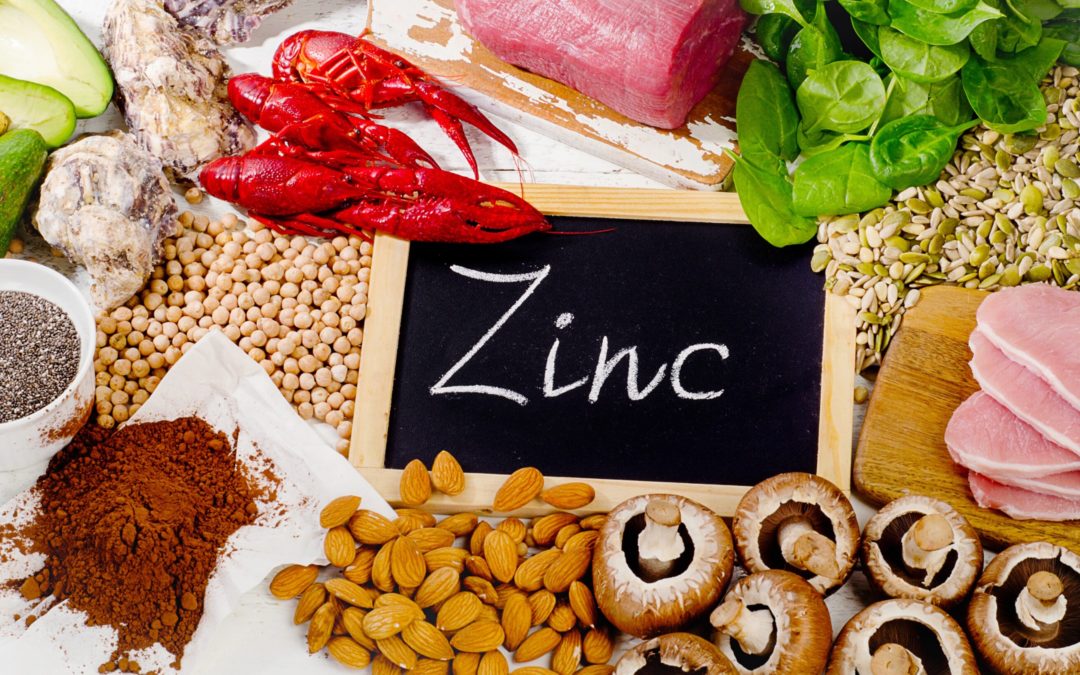Zinc Containing Foods: Boost Your Health with Zinc | Docindia.org

Many functions of our body processes depend on zinc, a necessary mineral. A number of enzymes require zinc as a mineral to function. Zinc is a mineral that the body needs in trace amounts. In addition to natural and processed foods, it can also be consumed as supplements or multi-nutrient supplements. Zinc is also included in certain nasal sprays, chewables, and other natural cold medicines due to its importance in immunological function. Zinc has played an important role in the creation of DNA and cell proliferation, production of proteins, restoration of tissue support for the immune system, expression of genes, recovery of the wound and body growth.
Foods Containing Zinc:
Meat:
While other meats like beef, lamb, and pork may also contain adequate amounts of zinc, red meat is an especially rich source of the mineral. 100 g (3.5 ounces) of raw ground beef provides 4.8 mg of zinc, or 44% of the Daily Value (DV). In addition, this amount of meat has 10 g of fat, 20 g of protein, and 176 calories. It's important to limit your intake of meat because it contains significant quantities of fat and cholesterol. It also contains iron, B vitamins, creatine, and a number of other vital elements.
Eggs:
Eggs include a small amount of zinc, which helps you meet your daily requirements. It aids in maintaining a healthy nervous system. One large egg also contains 77.5 calories, 6.3 g of protein, 5.3 g of healthy fats, and other vitamins and minerals, such as B vitamins, selenium, and choline.
Chicken:
Lean protein, like that found in chicken, aids in the formation and development of muscles. But a lot of people don't know that it has a lot of zinc. Regular consumption of chicken is good for your heart, bones, and immunity. Zinc content in chicken is 2.4 mg/85 g.
Shellfish:
Shellfish are low in calories and a great source of zinc. Oysters contain the most zinc when compared to other foods. Although they contain less zinc than oysters, other shellfish like crab, shrimp, lobster, and mussels are nonetheless important providers of the mineral.
Dairy Products:
Dairy products include a number of minerals, including zinc.
Two important sources are cheese and milk. These goods include zinc, which the body may absorb quickly due to its bioavailability. Yoghurt is the best source of zinc; in fact, 250 mL of yoghurt and 12 cups of ricotta cheese each contain 15% of the required zinc. Traces of zinc can be found in milk and cream.
Fruits And Vegetables:
Typically, fruits and vegetables are not the finest suppliers of zinc. Several vegetables can help you achieve your daily needs because they include reasonable amounts of meat, even if you don't eat it. Kale, regular and sweet potatoes, and green beans are some of the vegetables that are high in zinc in India. Compared to potatoes, including ordinary and sweet types, which have about 1 mg per large potato, or over 9% of the daily requirement, green beans and kale have less than 3% of the daily value (DV) per 100 gm.
Legumes:
Plant-based foods high in zinc include beans. Zinc is plentiful in legumes, such as beans, chickpeas, and lentils. For every 164 g of chickpeas, there are 2.5 mg of zinc. Lentils have a zinc content of 4.78–1.27 mg/100 g. There are 5.1 milligrams of zinc in 180 grams of kidney beans. However, beans can be an important source of zinc for people following a vegetarian or vegan diet. They are a fantastic source of protein and fibre and are simple to add to soups, stews, and salads.
Seeds:
In India, a wide range of seeds, such as pumpkin, flax, and sesame seeds, as well as vegetarian and non-vegetarian dishes, are rich sources of zinc. These foods are high in zinc and can provide up to 33 per percent of daily zinc needs. The high vitamin, mineral, and fibre content of the seeds guarantees a well-balanced diet. By adding the seeds to salads, soups, yoghurts, and other foods, you can include them in your diet. When included in a balanced diet, they have also been linked to other health benefits, including decreased cholesterol and blood pressure.
Nuts:
Cashews, almonds, and pine nuts are among the nuts that boost zinc consumption. Cashews are an excellent choice for a nut that is high in zinc. 15% of the daily value (DV) of zinc is found in a 1-ounce (28 gm) serving. Nuts may also help reduce risk factors for cancer, heart disease, and other diseases.
Since zinc is an essential mineral, eating enough of it is essential for good health. The best way to make sure you're getting enough zinc is to consume a varied diet that includes foods high in zinc, such as meat, fish, legumes, seeds, nuts, and dairy. However, if you're concerned that your diet isn't giving you enough zinc, ask your doctor about taking a supplement.
